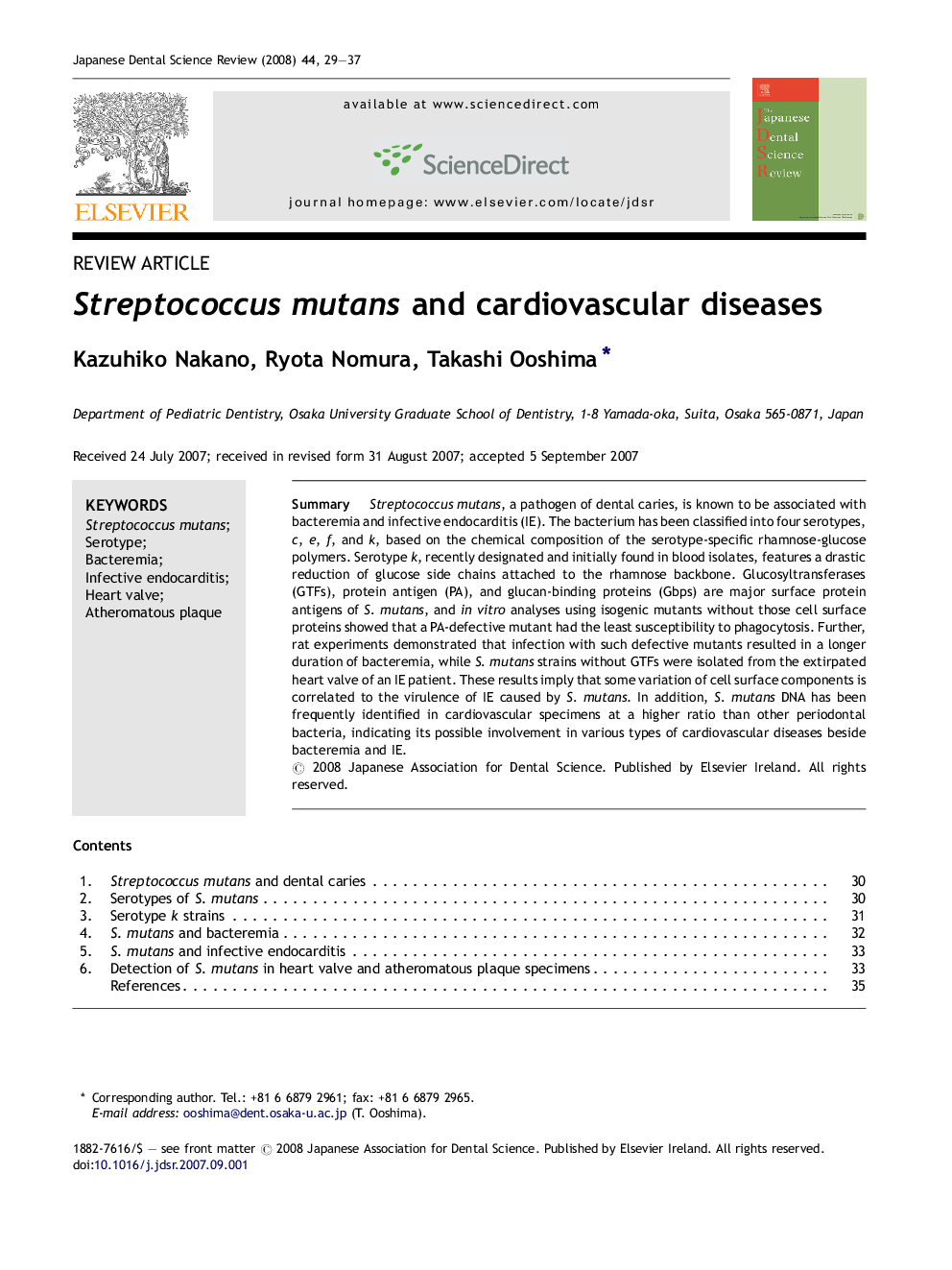| Article ID | Journal | Published Year | Pages | File Type |
|---|---|---|---|---|
| 3136261 | Japanese Dental Science Review | 2008 | 9 Pages |
SummaryStreptococcus mutans, a pathogen of dental caries, is known to be associated with bacteremia and infective endocarditis (IE). The bacterium has been classified into four serotypes, c, e, f, and k, based on the chemical composition of the serotype-specific rhamnose-glucose polymers. Serotype k, recently designated and initially found in blood isolates, features a drastic reduction of glucose side chains attached to the rhamnose backbone. Glucosyltransferases (GTFs), protein antigen (PA), and glucan-binding proteins (Gbps) are major surface protein antigens of S. mutans, and in vitro analyses using isogenic mutants without those cell surface proteins showed that a PA-defective mutant had the least susceptibility to phagocytosis. Further, rat experiments demonstrated that infection with such defective mutants resulted in a longer duration of bacteremia, while S. mutans strains without GTFs were isolated from the extirpated heart valve of an IE patient. These results imply that some variation of cell surface components is correlated to the virulence of IE caused by S. mutans. In addition, S. mutans DNA has been frequently identified in cardiovascular specimens at a higher ratio than other periodontal bacteria, indicating its possible involvement in various types of cardiovascular diseases beside bacteremia and IE.
